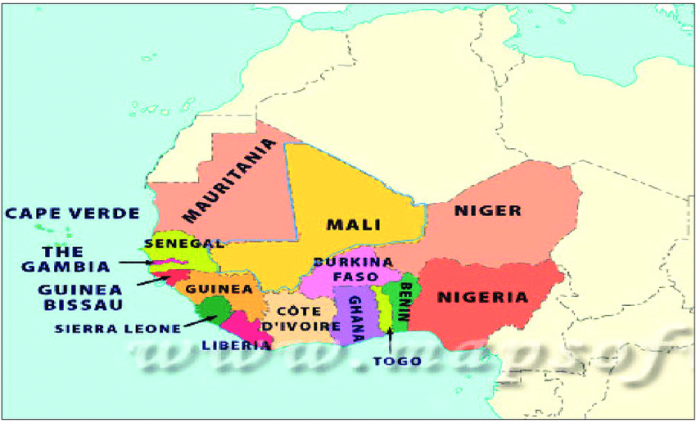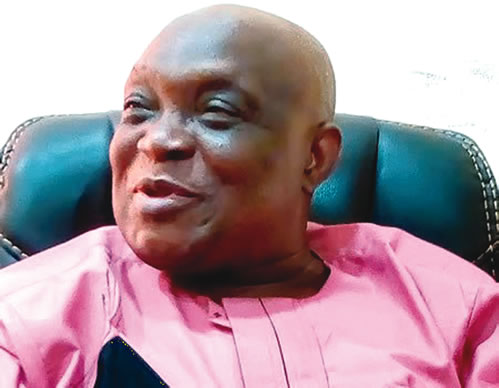…….Will West Africa win illicit financial flow war?
Illicit financial flow is a source of headache for managers of monetary policies in West Africa. Their score card in addressing the challenge has not yielded expected outcomes. The losses have been colossal.
According to Mr Kevin Urama, Chief Economist and Vice President, Economic Governance and Knowledge, Africa Development Bank, African countries are losing 90 billion dollars each year due to illicit financial flows.
As we enter 2024 it is important that Inter-Governmental Action Group against Money Laundering in West Africa (GIABA), the sub-regional arrow head in the fight against Illicit Financial Inflows (IFFs) sustains it engagement with critical stakeholders.
This was the dominant theme at the recently held summit for Compliance Officers in West Africa.
It provided a platform to share experiences and foster collaboration and cooperation in the use of technology to curb Money Laundering, Terrorism Financing (ML/TF) and its proliferation.
Such critical engagement also featured at the instances of the 27th Meeting of the Ministerial Committee of GIABA, as well as the 40th GIABA Technical Commission and Plenary Meeting held in Nigeria.
These stakeholders engagement sought to collectively proffer lasting solution to financial crimes, such as ML/TF and its proliferation in the sub-region.
Financial experts say collective engagement become necessary because money laundering and terrorism financing are global issues.
Africa Group Rallies Global Action Against Illicit Financial Flows(Opens in a new browser tab)
They say IFFs drains foreign exchange reserves, distort competition, inflate prices for real estate and other assets, lower tax receipts, and reduce government revenue.
They also said IFFs drain resources meant for developmental projects and could have detrimental impact by fuelling money laundering and corruption, thus undermining markets stability of markets, among others.
In his view, the Director-General of GIABA, Mr Edwin Harris, called on member states to give priority attention to the prosecution of IFF perpetrators, in order to tackle terrorism financing.
According to him, while technology offers new ways to prevent crimes related to money laundering and counter-terrorism financing measures, it also presents challenges that should be tackled.
Harris said: “New technologies for anti-money laundering must be developed and be deployed in a way that reflects threat and tackle such at any given opportunity.
“New technologies for anti-money laundering must be developed and implemented to reflect threat as an opportunity and show compatibility with international standards of data protection, privacy, and cyber security.
“GIABA will not come and arrest people in Nigeria or Liberia. It is the responsibility of member countries. I call on member states to take prosecution seriously because it is the main gain of our work.
“The more people are prosecuted and deterrence served, the less crime will be committed.”
Mr Lateef Fagbemi (SAN), the Attorney-General of the Federation and Minister of Justice, said IFFs posed serious threat to the sub-region.
Technologies, according to Fagbemi, who is also the Chairman of the GIABA Ministerial Committee, would enable member countries to push their national institutions to perform to the highest of their capabilities and achieve progress in financial crimes control.
He, therefore, advocated institutional framework for the enforcement of financial crimes regulations, saying the integral nature of the fight against ML/TF and proliferation financing to national safety and security cannot be over-emphasised.
Fagbemi said, “Our collective commitment to put in place legislative policy and institutional frameworks is necessary to protect the integrity of our financial systems from threats of ML/TF and proliferation financing.
“We must ensure we go beyond just focusing on technical compliance, to a results-based approach; this will require more efforts and resources than we have deployed so far”, he said.
For the fight to be successful, the must get the political will from the highest level in the sub-region and President of ECOWAS Commission, Dr Omar Toray, has promised to facilitate that.
According to him, in a media report, the commission will provide needed support to GIABA to sustain the gains in tackling outstanding issues in the action plans.
“We must not rest on the feat given the many challenges yet to overcome; ECOWAS will continue to provide requisite leadership and space for you to accelerate your compliance with international standards.
“I reaffirm the Commission’s readiness to strengthen cooperation and collaboration with GIABA in the face of ML/TF and other organised crime in our efforts towards regional integration of peace, stability and prosperity,” Toray was quoted as saying.
Since most of the illicit financial flows are carried out through digital platforms, same technology is also critical in tackling it, according to Mr Tukur Mobibbo, the Director of Nigerian Financial Intelligence Unit (NFIU).
Mobibbo, was quoted as describing financial crimes as dynamic and across borders.
Ndume rates Unimaid best for its stand against terrorism(Opens in a new browser tab)
“In West African countries, in terms of new technologies, only one country out of the seventeen countries have compliance, seven have partial-compliance, and nine which is 52 per cent have none compliance in new technology.
“Globally, out of the ten most impacted countries in terms of terrorism and financing of terrorism, four are from West Africa.
`We have continued to use technology to leverage technology in the coordination and fights against money laundering and terrorism financing,” he said.
Meanwhile, Mr Jeremy Weil, Vice-President, Financial Action Task Force (FATF) prescribed strengthening operational standards as way forward,
“Standards are not punitive measures, but tools to ensure safety, security and prosperity in countries, regions, continents and the global community.
“GIABA’s evaluations and research showed West Africa is exposed to a combination of risks, such as drug and human trafficking, fraud, and corruption that are closely associated with ML/TF.
“It is therefore critical for member countries to address their deficiencies through the effective implementation of the FATF standards,” Weil said.
Financial analysts say the prosecution of IFFs offenses must be taken very seriously while recovery involved funds should be proritised in order to remove profit from crimes.
They believe that technology is key to strengthening the safety of the global financial system. (NANFeatures)
By Fortune Abang, News Agency of Nigeria (NAN)




